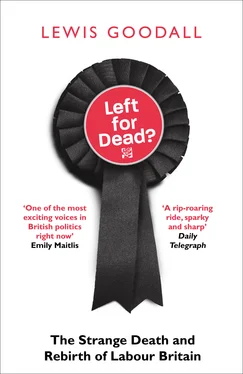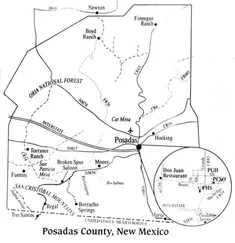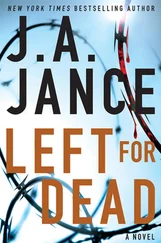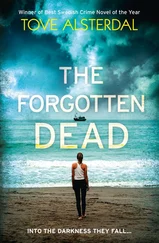Over time, things improved and as they did a fair number of opportunities came my way. A ‘Gifted and Talented’ fund was established and (thanks to some very dedicated teachers) paid for me to learn GCSE Drama and GCSE Spanish after school. It also paid for a hotel in London for me to do a week’s work experience in Parliament, chaperoned by (you guessed it) Grandad. You can imagine my 14-year-old giddiness (‘Was that David Blunkett?! MY GOD, THAT’S DAVID BLUNKETT, GRANDAD!’). It was also the first time I’d properly visited London. I walked poor Grandad’s legs off. He spent the afternoons recovering before we set out on our travels again: Piccadilly Circus, the Embankment, Whitehall, Oxford Street, Leicester Square – places I’d hitherto known only on a Monopoly board. As I walked around Parliament and in London’s bright lights, I swore to myself that one day I’d come back to work in both. Sometimes, as I’m walking past Big Ben on my way to work, or dashing to meet an MP or going to do a live in Downing Street, I think back and can almost see my podgy 14-year-old ghost walking with his grandad, and I pinch myself.
Towards the end of my time at school, a senior teacher handed me a brochure with the words ‘Aim Higher’ emblazoned across its front. Inside, its pages outlined a new programme, a series of summer schools that had just been established across British universities to encourage kids from state schools without much history of sending students to Russell Group universities to apply. Everything was paid for, accommodation, train fare, food – the works. ‘You should think about the one at Oxford,’ he told me. I acted on his advice, applied to the programme and was accepted. I had the time of my life. Up to then I used to dream of what it would be like to escape my happy but small world and in that week, surrounded by the books and the buildings and the spires, I began, for the first time, to see the shape of a new, bigger existence that might take its place. From then on all I wanted to do was go and I was determined to do everything I could to make it happen. I spent weekends scouring the internet (dial-up, when not interrupted by calls from Nan, aunts and Mum’s friends) for every scrap of information I could to help me get there, be it about interviews, extracurricular activities, practice entrance examination techniques and the rest. I worked like a dog for my GCSEs, now knowing how important they were to the application process. Two years later, in what was then the proudest moment of my life, I was able to tell my crying, jubilant mum that I’d won a place at St John’s College, Oxford, to read History and Politics. I will never forget opening that letter, in full Charlie Bucket mode, reading the words aloud again and again lest they vanish from the page. Mum literally jumped for joy; once she came back down to earth, I noticed she had a look in her eyes. At the time I thought it was pride. But looking back I think it was more: it was vindication. Vindication in the face of all the people who had written her off as a hopeless teenage mum all those years before. I think much of the rest of my life has flowed from the contents of that letter, opened on that December afternoon. And yet I’m quite confident that the words inside would neither have been read nor written had it not been for that precious week in midsummer, two years before.
Just as I was packing my bags for Oxford, work was about to start on a new £3m sports hall at Turves Green Boys. Birmingham was changing around me too. Slowly but surely, with the new Bull Ring and revamped city centre, Brum had a spring in its step. The city was shining with fresh glass and things felt hopeful. My mum’s sisters, who had lived with us all together in Erdington, were by then starting to have kids of their own (waiting to the grand old age of their early and mid-twenties, which is pretty late in my family ‡). They seemed better off than we had been. Not so much because their income was greater – if anything it was probably a touch less – but it was topped up by the new sprawling system of tax credits created by Gordon Brown. I couldn’t help but be aware of this because occasionally, in the car on the way home after we had been visiting, Mum’s eyes would flash and invariably she’d spit out something like: ‘They don’t know they’re born, we didn’t get tax credits or anything like that with you.’ Nothing quite like sisterly love, sometimes.
Much if not all of what I’ve just relayed followed inexorably from my watching the New Labour government to office, on that 1997 day. They put the money in to refit old dilapidated council housing on its last legs. They established the Gifted and Talented fund. They invested in regional cities. They refurbished schools. They established the Aim Higher Summer School Programme. §In short, I have no doubt that I wouldn’t be where I am today were it not for the New Labour government. They say the personal is political. It doesn’t get more personal than that. You can say it was all on tick, all on borrowed time. You can say that Blair didn’t achieve enough, that he was a neoliberal, a Tory, a Thatcherite wolf in Labour clothing. You’re perfectly entitled to think this and you’re perfectly entitled to make the accusation that I am a Blairite (I’m sure some of you will). That isn’t true. I’m a journalist and like all journalists I can only relay to you lived experience as I see it. I can only tell you that those things were transformative to me and to those around me. I think it’s also the reason why – you wouldn’t know it from reading the editorials in the Guardian or listening to many of the bien pensant voices in London – in many working-class communities there are plenty of people (my parents and their friends included) who don’t have a bad word to say about Tony Blair. They remember their lives before his time in office and they felt their material lives tangibly improve. My own life is among that number. Many people I know want someone to arrest Tony Blair. I confess to you that when I met him for the first time as a journalist, part of me – a not insignificant part – wanted to thank him for what his government had done.
I got older, I saw many of the government’s imperfections, began to appreciate Blair’s and Brown’s personality defects, the endless tedium of their interminable psychodrama. I, like many others, felt disillusioned by the horrors of Iraq. By the end of my period at university, watching the results programme on my iMac with friends, drinking cheap Malbec in plastic cups right in the middle of my finals week, it felt like New Labour’s time was exhausted, tarnished in a thousand ways, in the sands of the Middle East, in the expenses office of the House of Commons, in the pages of the Hutton Report, in the meeting rooms of Downing Street where the Election That Never Was was called off. But it’s clear, now we can look at the period with a more neutral, dispassionate lens, that in most ways Britain got better in those years, especially for the people Labour was established to defend and promote, the working classes.
It is then a matter of some curiousness that Blair’s name is mud and that period of Labour government, the longest in the party’s history, is considered an embarrassing aberration by so many within and without the Labour Party. The fate of its reputation tells us much, not only about the inadequacies of both New Labour and its replacement but of the entire breed of ‘moderate’ centre-leftism that has all but disappeared around the world.
I don’t propose to give a blow-by-blow account of the New Labour years. It’s already been done. Instead, we need a different approach in our attempts to understand that era. The most common accusation against New Labour is that it had become a pale imitation of the Tory Party, that it had mutated into a form of Thatcherism with, at best, a human edge. This accusation was made in its earliest days. Even by 1996, before Blair became prime minister, the mid-1990s seminal state of the nation TV drama Our Friends in the North lambasted the project as a sell-out. The son of one of the main characters, Mary (who had started out on the left of the party as a local councillor only to become leader of Newcastle City Council in the 1980s and a Blairite MP), accosts his mother at a political meeting: ‘Mother, man, if you and your New Labour party sound any more like the Tories they’ll sue you for plagiarism.’ This belief was to embed itself, then multiply, before it finally became received wisdom in the party, and is the main reason, alongside his foreign policy decisions, why Blair has been disowned as a pariah.
Читать дальше












